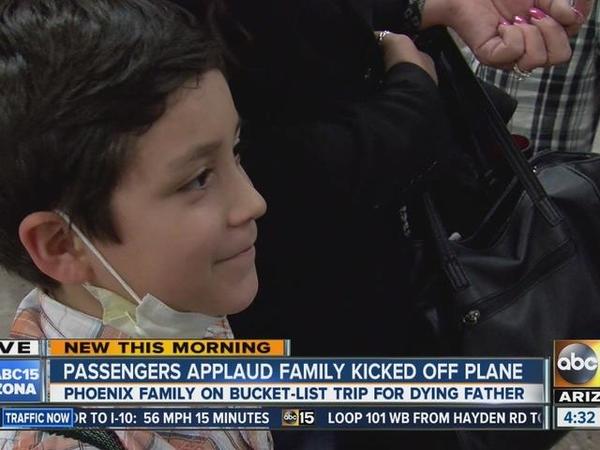Be kind. Be nice.
That’s the message that a father with terminal cancer gives when he and his family are removed from a plane after his young son has an allergic reaction to a dog.
At the Asthma and Allergy Foundation of America, sometimes we wish we could wave a magic wand assure that there is compassion and empathy towards everyone with chronic – not to mention terminal - diseases.
Of course, we know that’s not possible. And we don’t know all the circumstances of this story. If the news reports are accurate, this story is very upsetting.
According to the CDC, more than 25 million Americans have asthma and more than 50 million have allergies. Existing laws and regulations do not address all of the day-to-day realities of this public health problem.
People with allergies and asthma must take special precautions when they travel – whether that is by plane or by train.
Allergies and asthma are unique in that people with these diseases are dependent on the quality of the environment around them. And that environment is often not one they can control, whether at school, at work, or simply while trying to get home after one last trip as a family.
According to various news reports, Allegiant Airlines removed 7-year-old Giovanni and his parents from a plane.
Medical personnel apparently told the family the boy should not stay on the plane after he developed hives and continued to itch, even after moving away from the dog. The family was not previously aware of the boy's allergy.
News reports stated the mom said the flight attendant “smirked” and fellow travelers applauded as the family gathered up their belongings. No one knew that the father has stage IV throat cancer. Or that the Arizona family was flying home after a special trip to see relatives in Washington state – possibly for the father’s last time.
Allegiant Air has expressed regret about the event. "It's definitely a really sad situation," said spokesperson Kim Schaefer.
Airline policies for accommodating passengers with allergies can vary from one airline to another. Often, policies are inconsistently enforced. Each airline is free to have its own procedures. All airlines are required to allow service animals in the passenger cabins. Many airlines also allow non-service animal pets in the cabin.
So AAFA urges travelers with known asthma and allergies to be prepared:
- Carry your medications with you at all times – epinephrine auto-injectors, asthma quick relief inhalers, and possibly antihistamines for minor itching and hives
- Call ahead and explain your condition to a customer service representative
- Find out the policies for the transportation you are using, or the place you are visiting
- Know your asthma and allergy triggers
- Know where to get medical help if you need it
AAFA also supports the Airline Access to Emergency Epinephrine Act. This bill addresses some of the challenges faced by airline passengers with allergies. The lack of easy access to medical care makes flying with allergies even more of an anxiety-inducing experience. Part of the bill would require airlines to train crew members to recognize the signs of a severe allergic reaction and to treat the reaction with epinephrine auto-injectors. You can support this bill by sending an online letter to your senators.
AAFA wishes Giovanni and his family the best in the months and years ahead.
News reports:
- Visit the Federal Aviation Administration for more information about pets in passenger cabins.
- Visit the U.S. Department of Transportation for a list of policies on the serving of nuts on major U.S. airlines.
- Read our response to Amtrak's new "Pets on Trains" policy.
- Get travel tips from this Kids With Food Allergies webinar: Flying with Food Allergies, with Matthew Greenhawt, MD, MBA, MSc, and Laurel Francoeur, JD. They cover issues related to flying: legal restrictions; disability issues; TSA regulations; peanut dust and inhalation studies; and how to prevent food allergic reactions on airplanes.


Comments (0)